George Orwell
George Orwell was an English novelist, essayist and critic most famous for his novels 'Animal Farm' (1945) and 'Nineteen Eighty-Four' (1949).
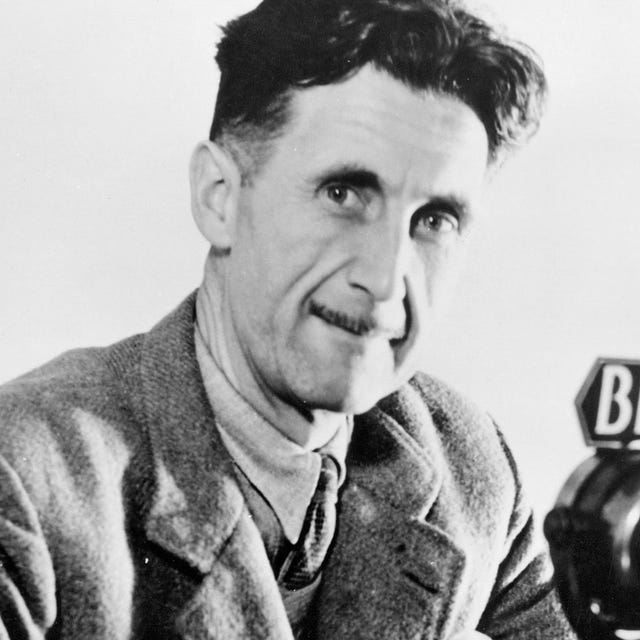
(1903-1950)

Who Was George Orwell?
George Orwell was a novelist, essayist and critic best known for his novels Animal Farm and Nineteen Eighty-Four . He was a man of strong opinions who addressed some of the major political movements of his times, including imperialism, fascism and communism.
Orwell was born Eric Arthur Blair in Motihari, India, on June 25, 1903. The son of a British civil servant, Orwell spent his first days in India, where his father was stationed. His mother brought him and his older sister, Marjorie, to England about a year after his birth and settled in Henley-on-Thames. His father stayed behind in India and rarely visited. (His younger sister, Avril, was born in 1908. Orwell didn't really know his father until he retired from the service in 1912. And even after that, the pair never formed a strong bond. He found his father to be dull and conservative.
According to one biography, Orwell's first word was "beastly." He was a sick child, often battling bronchitis and the flu.
Orwell took up writing at an early age, reportedly composing his first poem around age four. He later wrote, "I had the lonely child's habit of making up stories and holding conversations with imaginary persons, and I think from the very start my literary ambitions were mixed up with the feeling of being isolated and undervalued." One of his first literary successes came at the age of 11 when he had a poem published in the local newspaper.
Like many other boys in England, Orwell was sent to boarding school. In 1911, he went to St. Cyprian's in the coastal town of Eastbourne, where he got his first taste of England's class system.
On a partial scholarship, Orwell noticed that the school treated the richer students better than the poorer ones. He wasn't popular with his peers, and in books, he found comfort from his difficult situation. He read works by Rudyard Kipling and H.G. Wells , among others.
What he lacked in personality, he made up for in smarts. Orwell won scholarships to Wellington College and Eton College to continue his studies.
After completing his schooling at Eton, Orwell found himself at a dead end. His family did not have the money to pay for a university education. Instead, he joined the India Imperial Police Force in 1922. After five years in Burma, Orwell resigned his post and returned to England. He was intent on making it as a writer.
Early Writing Career
After leaving the India Imperial Force, Orwell struggled to get his writing career off the ground and took all sorts of jobs to make ends meet, including being a dishwasher.
'Down and Out in Paris and London' (1933)
Orwell’s first major work explored his time eking out a living in these two cities. The book provided a brutal look at the lives of the working poor and of those living a transient existence. Not wishing to embarrass his family, the author published the book under the pseudonym George Orwell.
'Burmese Days' (1934)
Orwell next explored his overseas experiences in Burmese Days , which offered a dark look at British colonialism in Burma, then part of the country's Indian empire. Orwell's interest in political matters grew rapidly after this novel was published.
War Injury and Tuberculosis
In December 1936, Orwell traveled to Spain, where he joined one of the groups fighting against General Francisco Franco in the Spanish Civil War. Orwell was badly injured during his time with a militia, getting shot in the throat and arm. For several weeks, he was unable to speak. Orwell and his wife, Eileen, were indicted on treason charges in Spain. Fortunately, the charges were brought after the couple had left the country.
Other health problems plagued the talented writer not long after his return to England. For years, Orwell had periods of sickness, and he was officially diagnosed with tuberculosis in 1938. He spent several months at the Preston Hall Sanatorium trying to recover, but he would continue to battle with tuberculosis for the rest of his life. At the time he was initially diagnosed, there was no effective treatment for the disease.
Literary Critic and BBC Producer
To support himself, Orwell took on various writing assignments. He wrote numerous essays and reviews over the years, developing a reputation for producing well-crafted literary criticism.
In 1941, Orwell landed a job with the BBC as a producer. He developed news commentary and shows for audiences in the eastern part of the British Empire. Orwell drew such literary greats as T.S. Eliot and E.M. Forster to appear on his programs.
With World War II raging on, Orwell found himself acting as a propagandist to advance the country's national interest. He loathed this part of his job, describing the company's atmosphere in his diary as "something halfway between a girls’ school and a lunatic asylum, and all we are doing at present is useless, or slightly worse than useless.”
Orwell resigned in 1943, saying “I was wasting my own time and the public money on doing work that produces no result. I believe that in the present political situation the broadcasting of British propaganda to India is an almost hopeless task.” Around this time, Orwell became the literary editor for a socialist newspaper.
Famous Books
Sometimes called the conscience of a generation, Orwell is best known for two novels: Animal Farm and Nineteen Eighty-Four . Both books, published toward the end of Orwell’s life, have been turned into films and enjoyed tremendous popularity over the years.
‘Animal Farm’ (1945)
Animal Farm was an anti-Soviet satire in a pastoral setting featuring two pigs as its main protagonists. These pigs were said to represent Joseph Stalin and Leon Trotsky . The novel brought Orwell great acclaim and financial rewards.
‘Nineteen Eighty-Four’ (1949)
Orwell’s masterwork, Nineteen Eighty-Four (or 1984 in later editions), was published in the late stages of his battle with tuberculosis and soon before his death. This bleak vision of the world divided into three oppressive nations stirred up controversy among reviewers, who found this fictional future too despairing. In the novel, Orwell gave readers a glimpse into what would happen if the government controlled every detail of a person's life, down to their own private thoughts.
‘Politics and the English Language’
Published in April 1946 in the British literary magazine Horizon , this essay is considered one of Orwell’s most important works on style. Orwell believed that "ugly and inaccurate" English enabled oppressive ideology and that vague or meaningless language was meant to hide the truth. He argued that language should not naturally evolve over time but should be “an instrument which we shape for our own purposes.” To write well is to be able to think clearly and engage in political discourse, he wrote, as he rallied against cliches, dying metaphors and pretentious or meaningless language.
‘Shooting an Elephant’
This essay, published in the literary magazine New Writing in 1936, discusses Orwell’s time as a police officer in Burma (now known as Myanmar), which was still a British colony at the time. Orwell hated his job and thought imperialism was “an evil thing;” as a representative of imperialism, he was disliked by locals. One day, although he didn’t think it necessary, he killed a working elephant in front of a crowd of locals just “to avoid looking a fool.” The essay was later the title piece in a collection of Orwell’s essays, published in 1950, which included ‘My Country Right or Left,’ ‘How the Poor Die’ and ‘Such, Such were the Joys.’
Wives and Children
Orwell married Eileen O'Shaughnessy in June 1936, and Eileen supported and assisted Orwell in his career. The couple remained together until her death in 1945. According to several reports, they had an open marriage, and Orwell had a number of dalliances. In 1944 the couple adopted a son, whom they named Richard Horatio Blair, after one of Orwell's ancestors. Their son was largely raised by Orwell's sister Avril after Eileen's death.
Near the end of his life, Orwell proposed to editor Sonia Brownell. He married her in October 1949, only a short time before his death. Brownell inherited Orwell's estate and made a career out of managing his legacy.
Orwell died of tuberculosis in a London hospital on January 21, 1950. Although he was just 46 years old at the time of his death, his ideas and opinions have lived on through his work.
Despite Orwell’s disdain for the BBC during his life, a statue of the writer was commissioned by artist Martin Jennings and installed outside the BBC in London. An inscription reads, "If liberty means anything at all, it means the right to tell people what they do not want to hear." The eight-foot bronze statue, paid for by the George Orwell Memorial Fund, was unveiled in November 2017.
"Would he have approved of it? It's an interesting question. I think he would have been reserved, given that he was very self-effacing,” Orwell’s son Richard Blair told The Daily Telegraph . "In the end I think he would have been forced to accept it by his friends. He would have to recognise that he was a man of the moment.”
QUICK FACTS
- Name: George Orwell
- Birth Year: 1903
- Birth date: June 25, 1903
- Birth City: Motihari
- Birth Country: India
- Gender: Male
- Best Known For: George Orwell was an English novelist, essayist and critic most famous for his novels 'Animal Farm' (1945) and 'Nineteen Eighty-Four' (1949).
- Fiction and Poetry
- Journalism and Nonfiction
- Astrological Sign: Cancer
- Interesting Facts
- According to one biography, Orwell's first word as a child was "beastly."
- Orwell fought in the Spanish Civil War and was badly injured. He and his wife were later indicted of treason in Spain.
- Orwell was once a BBC producer and ended up loathing his job as he felt he was being used as a propaganda machine.
- Death Year: 1950
- Death date: January 21, 1950
- Death City: London
- Death Country: United Kingdom
We strive for accuracy and fairness.If you see something that doesn't look right, contact us !
CITATION INFORMATION
- Article Title: George Orwell Biography
- Author: Biography.com Editors
- Website Name: The Biography.com website
- Url: https://www.biography.com/authors-writers/george-orwell
- Access Date:
- Publisher: A&E; Television Networks
- Last Updated: May 3, 2021
- Original Published Date: April 2, 2014
- In our age there is no such thing as 'keeping out of politics.' All issues are political issues, and politics itself is a mass of lies, evasions, folly, hatred and schizophrenia.
- Happiness can exist only in acceptance.
- Power is not a means, it is an end. One does not establish a dictatorship in order to safeguard a revolution; one makes the revolution in order to establish the dictatorship.
- Each generation imagines itself to be more intelligent than the one that went before it, and wiser than the one that comes after it.

Famous British People
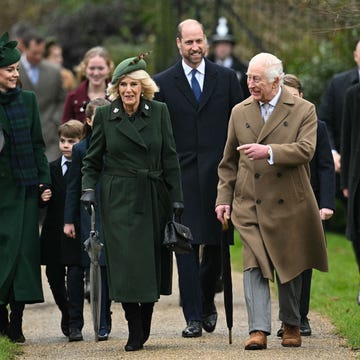
British Monarchy’s Huge Pay Increase in 2025

Prince Harry

Kate Middleton, Princess of Wales

Ralph Fiennes

Liam Payne’s Girlfriend Speaks Out After His Death
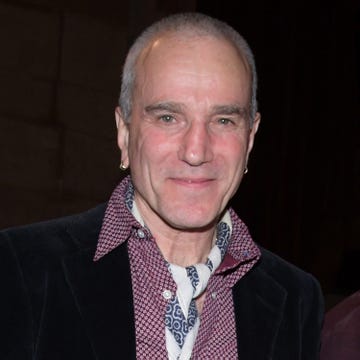
Daniel Day-Lewis
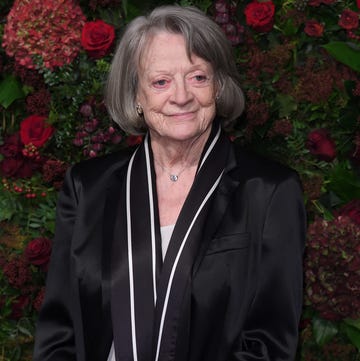
Maggie Smith

Alan Cumming
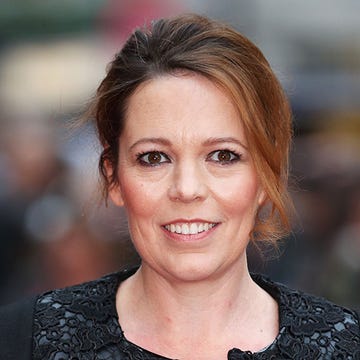
Olivia Colman
- About George Orwell
- Partners and Sponsors
- Accessibility
- Policies and complaints
- Upcoming events
- The Orwell Festival
- The Orwell Memorial Lectures
- Books by Orwell
- Essays and other works
- Encountering Orwell
- Orwell Live
- About the prizes
- Reporting Homelessness
- Previous winners
- Orwell Fellows
- Introduction
- Volunteering
- Terms and Conditions
- Start your journey
- Inspiration
- Find Your Form
- Start Writing
- Responding to Feedback
- Our offer for teachers
- Lesson Plans
- Events and Workshops
- GCSE Practice Papers
- Finalists 2024
- The Orwell Youth Fellows
The Orwell Foundation
- The Orwell Prizes
- The Orwell Youth Prize
George Orwell was an English novelist, essayist, and critic most famous for his novels Animal Farm (1945) and Nineteen Eighty-Four (1949).
The following biography was written by D.J. Taylor. Taylor is an author, journalist and critic. His biography, Orwell: The Life won the 2003 Whitbread Biography Award. His new biography, Orwell: The New Life was published in 2023. D.J. Taylor is a member of the Orwell Council .
The Orwell Foundation is a registered charity. If you value these resources, please consider becoming a Friend or Patron or making a donation to support our work. You can find more work about Orwell in our library .
Orwell: A (Brief) Life, by D.J. Taylor
GEORGE ORWELL, the pen-name of Eric Arthur Blair, was born on 25 June 1903 in Motihari, Bengal, where his father, Richard Walmesley Blair, was working as an Opium Agent in the Indian Civil Service, into what – with the uncanny precision he brought to all social judgments – he described as ‘the lower-upper-middle classes’. In fact the Blairs were remote descendants of the Fane Earls of Westmoreland. Like many a child of the Raj, Orwell was swiftly returned to England and brought up almost exclusively by his mother. The Thames Valley locales in which the family settled provided the background to his novel Coming Up For Air (1939).
Happily for the family finances – never flourishing – Orwell was a studious child. From St Cyprian’s preparatory school in Eastbourne, a legendary establishment that also educated Cyril Connolly and Cecil Beaton, he won a King’s Scholarship to Eton College, arriving at the school in May 1917. Orwell left a caustic memoir of his time at St Cyprian’s (‘Such, Such Were The Joys’) but also remarked that ‘No one can look back on his schooldays and say with truth that they were altogether unhappy.’ At Eton he frankly slacked, leaving the school in December 1921 after only a term in the sixth form. The following June he passed the entrance examination of the Indian Imperial Police and was accepted into its Burma division.
Orwell’s five-year stint in Burma is often seen as a mournful period of parentally-ordained exile. However both sides of his family were professionally attached to the Eastern Empire, and his stated reason for applying for the Burma posting was that he had relatives there. Almost nothing is known of Orwell’s time in the province, other than that it offered the material for two of his best-known essays, ‘A Hanging’ and ‘Shooting an Elephant’ and his first novel Burmese Days (1934). It also ruined his health. Although disillusioned by the Imperial ‘racket’ he had helped to administer, he left Burma in June 1927 on a medical certificate. The decision to resign from the Burma Police was taken after his return.
For the next five years he led a vagrant life. Some of this time was spent at his parents’ home in Southwold, Suffolk. There were periods teaching in private schools, living in Paris and masquerading as a tramp, the background to his first published work, Down and Out in Paris and London (1933). His professional alias, which combined the name of the reigning monarch with a local river, was adopted shortly before publication. His teaching career was brought to a close by a bout of pneumonia and at the end of 1934, having used a long, recuperative stay in Southwold to complete a second novel, A Clergyman’s Daughter (1935), he decamped to London to work in a Hampstead bookshop. This was a productive period. Here he met and married his first wife, Eileen O’Shaughnessy, and wrote a third novel, partly based on his book-trade experiences, Keep the Aspidistra Flying (1936).
The Orwells began their married life in a tiny cottage in Wallington, Hertfordshire, where Orwell worked up the material gathered on a recent tour of the industrial north into The Road to Wigan Pier (1937). Although the book’s second half consists of a long, inflammatory polemic on Socialism, Orwell’s political views were still not fully formed. The defining political experience of his life, alternatively, was the six months he spent in Spain, in 1937, as a Republican volunteer against Franco. He was wounded in the throat – the bullet passing within a few millimetres of his carotid artery – and was present in Barcelona when Soviet-sponsored hit-squads attempted to suppress the Trotskyist POUM militia, of which he had been a member. Spain made Orwell ‘believe in Socialism for the first time’, as he put it, while instilling an enduring hatred of totalitarian political systems.
Homage to Catalonia , an account of his time in Spain, was published in April 1938. He spent most of the next year recuperating, both in England and Morocco, from a life-threatening lung haemorrhage. At this stage Orwell was determined to oppose the looming international conflict, only changing his mind on the announcement of the Russo-German pact in August 1939. Initially Orwell had high hopes of the war, which he believed would instil a sense of Socialist purpose: this view was developed in the pamphlet essay The Lion and the Unicorn: Socialism and the English Genius (1941). Rejected for military service on health grounds, he became a talks producer in the BBC’s Eastern Service, a job he came to dislike. The BBC’s atmosphere, he complained, ‘is something between a girls’ school and a lunatic asylum, and all we are doing at present is useless, or slightly worse than useless’. In 1943 he secured a more congenial billet as literary editor of the left-wing weekly magazine Tribune , to which he also contributed a column under the heading ‘As I Please’.
Animal Farm , his bitter satire of the Soviet experiment, was written by the middle of 1944. Publishers’ timidity, and the covert pressure exerted by a Russian spy working for the Ministry of Information, delayed its appearance until August 1945. By this time Orwell’s personal life was in ruins. Five months previously Eileen had died of heart failure during a routine operation. The couple had previously adopted a small boy, Richard Horatio Blair, whom Orwell, with the help of his sister Avril, determined to raise on his own.
Through his friend David Astor, he had already begun to explore the possibility of living on the remote Scottish island of Jura. Much of the last half-decade of his life was spent in the Inner Hebrides struggling against worsening health to complete his final novel, Nineteen Eighty-Four . After finishing a final draft at the end of 1948 he suffered a complete physical collapse and was taken away to a nursing home in the Cotswolds suffering from advanced tuberculosis. The novel’s enormous international success, on publication in June 1949, came too late for its author. He was transferred to University College Hospital in September and died there on 21 January 1950, aged 46. Shortly before his death he made an unexpected second marriage to Sonia Brownell, an editorial assistant on the literary magazine Horizon . Sitting down to read his obituaries on the day of his funeral, his friend Malcolm Muggeridge thought that he saw in them ‘how the legend of a human being is created’.
D. J. Taylor was born in Norwich in 1960. He is the author of five novels, including English Settlement , which won a Grinzane Cavour prize, Trespass and The Comedy Man . He is also well-known as a critic and reviewer, and is the author of A Vain Conceit: British Fiction in the 1980s , and an acclaimed biography, Thackeray . His critically acclaimed Orwell biography , Orwell: The Life (2003) won the Whitbread Biography Award, and he gave the 2005 Orwell Lecture entitled ‘Projections of the Inner “I”: George Orwell’s Fiction’. He is married with three children and lives in Norwich. Orwell: The New Life was published in 2023.
We use cookies. By browsing our site you agree to our use of cookies. Accept
Accessibility links
- Skip to content
- Skip to local navigation
- Skip to bbc.co.uk navigation
- Skip to bbc.co.uk search
- Accessibility Help
- Historic Figures
- Ancient History
- British History
- Family History
- Hands on History
- History for Kids
- On This Day

George Orwell (1903 - 1950)

Orwell was born Eric Arthur Blair on 25 June 1903 in eastern India, the son of a British colonial civil servant. He was educated in England and, after he left Eton, joined the Indian Imperial Police in Burma, then a British colony. He resigned in 1927 and decided to become a writer. In 1928, he moved to Paris where lack of success as a writer forced him into a series of menial jobs. He described his experiences in his first book, 'Down and Out in Paris and London', published in 1933. He took the name George Orwell, shortly before its publication. This was followed by his first novel, 'Burmese Days', in 1934.
An anarchist in the late 1920s, by the 1930s he had begun to consider himself a socialist. In 1936, he was commissioned to write an account of poverty among unemployed miners in northern England, which resulted in 'The Road to Wigan Pier' (1937). Late in 1936, Orwell travelled to Spain to fight for the Republicans against Franco's Nationalists. He was forced to flee in fear of his life from Soviet-backed communists who were suppressing revolutionary socialist dissenters. The experience turned him into a lifelong anti-Stalinist.
Between 1941 and 1943, Orwell worked on propaganda for the BBC. In 1943, he became literary editor of the Tribune, a weekly left-wing magazine. By now he was a prolific journalist, writing articles, reviews and books.
In 1945, Orwell's 'Animal Farm' was published. A political fable set in a farmyard but based on Stalin's betrayal of the Russian Revolution, it made Orwell's name and ensured he was financially comfortable for the first time in his life. 'Nineteen Eighty-Four' was published four years later. Set in an imaginary totalitarian future, the book made a deep impression, with its title and many phrases - such as 'Big Brother is watching you', 'newspeak' and 'doublethink' - entering popular use. By now Orwell's health was deteriorating and he died of tuberculosis on 21 January 1950.
«; More Historic Figures
Battle of britain.

- Explore the Battle of Britain with clips from BBC programmes
World War One Centenary

- Find out more about how the BBC is covering the World War One Centenary , and see the latest programmes and online content

- Has Dulce et Decorum Est affected our view of WW1?
Search term:
BBC navigation
- Northern Ireland
- Full A-Z of BBC sites
You're using the Internet Explorer 6 browser to view the BBC website. Our site will work much better if you change to a more modern browser. It's free, quick and easy. Find out more about upgrading your browser here…
- Mobile site
- Terms of Use
- About the BBC
- Contact the BBC
- Parental Guidance
BBC © 2014 The BBC is not responsible for the content of external sites. Read more.
This page is best viewed in an up-to-date web browser with style sheets (CSS) enabled. While you will be able to view the content of this page in your current browser, you will not be able to get the full visual experience. Please consider upgrading your browser software or enabling style sheets (CSS) if you are able to do so.
Biography Online

Biography George Orwell
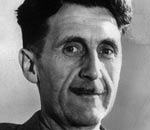
Orwell’s Early life
Orwell was born Eric Blair on 25 June 1903, in Motihari, Bihar, in India. Shortly after his birth, he was taken by his mother back to Oxfordshire, England. His family were financially poor, but an aspiring middle-class family. Orwell described it as ‘lower-upper-middle-class’ – a reflection of the importance he felt the English attached to class labels.
With his family unable to afford fees to a proper public school, he was educated at St Cyprian’s in Eastbourne, which served as a preliminary crammer to gaining a scholarship for public schools like Eton. In a later essay “Such, Such were the Joys” he was scathing of his time at St Cyprian’s noting how difficult it was to be happy in such a mean-spirited environment. Aged 14, he was able to move to Eton, where he had better memories because of the greater intellectual stimulation. However, the awareness of being much poorer than many of his school friends remained. He left Eton with firmly held “middle class” values but at the same time a sense of unease with his social position.
After school, he was unable to afford university, and for want of a better option, Orwell took a job with the Burmese civil service. It was here in Burma, that Orwell would begin to assert his independence from his privileged upbringing. Revealingly, Orwell later told how he found himself rooting for the local population, and despising the imperial ideology which he represented. He resigned from his position in 1927. In an essay Shooting the Elephant he describes he feelings on Burma:
“ Theoretically and secretly of course, I was always for the Burmese and all against the oppressors, the British. As for the job I was doing I hated it more bitterly than I can perhaps make clear” (1)
It was in the nature of George Orwell to try and see a situation from other people’s point of view. He was unhappy at accepting the conventional social wisdom. In fact, he grew to despise his middle-class upbringing so much he decided to spend time as a tramp. He wanted to experience life from the view of the gutter. His vivid experiences are recorded in his book “ Down and out in Paris and London ”. No longer could Orwell be described as a “Champagne Socialist”; by living with the poorest and underprivileged, he gained a unique insight into the practical workings of working class ideas and working-class politics.
The Road to Wigan Pier
In the middle of the great depression, Orwell undertook another experience travelling to Wigan; an industrial town in Lancashire experiencing the full effects of mass unemployment and poverty. Orwell freely admitted how, as a young child, he was brought up to despise the working class. He vividly tells how he was obsessed with the idea that the working classes smelt:
“At a distance.. I could agonise over their sufferings, but I still hated them and despised them when I came anywhere near them .” (2)
The Road to Wigan Pier offered a penetrating insight into the condition of the working classes. It was also a right of passage for Orwell to live amongst the people he had once, from a distance, despised. The Road to Wigan Pier inevitably had a political message, but characteristically of Orwell, it was not all pleasing to the left. For example, it was less than flattering towards the Communist party. This was despite the book being promoted by a mostly Communist organisation – The Left Book club.
Orwell and the Spanish Civil War
It was fighting in the Spanish Civil war that Orwell came to really despise Communist influences. In 1936, Orwell volunteered to fight for the fledgeling Spanish Republic, who at the time were fighting the Fascist forces of General Franco. It was a conflict that polarised nations. To the left, the war was a symbol of a real socialist revolution, based on the principles of equality and freedom. It was for these ideals that many international volunteers, from around the world, went to Spain to fight on behalf of the Republic. Orwell found himself in the heart of the Socialist revolution in Barcelona. He was assigned to an Anarchist – Trotskyist party – P.O.U.M. More than most other left-wing parties, they believed in the ideal of a real Marxist revolution. To members of the P.O.U.M, the war was not just about fighting the Fascist menace but also delivering a Socialist revolution for the working classes. In his book, “ Homage to Catalonia ” Orwell writes of his experiences; he notes the inefficiency with which the Spanish fought even wars. He was enthused by the revolutionary fervour of some of his party members; however, one of the overriding impressions was his perceived betrayal of the Republic, by the Stalinist backed Communist party.
“ the Communists stood not upon the extreme Left, but upon the extreme right. In reality this should come as no surprise, because the tactics of the Communist parties elsewhere ” (3)
Unwittingly he found himself engaged in a civil war amongst the left, as the Soviet Union backed Communist party turned on the Trotskyite factions like P.O.U.M. In the end, Orwell narrowly escaped with his life, after being shot in the throat. He was able to return to England, but he had learnt at first hand how revolutions could easily be betrayed; ideas that would later shape his seminal work “ Animal Farm .”
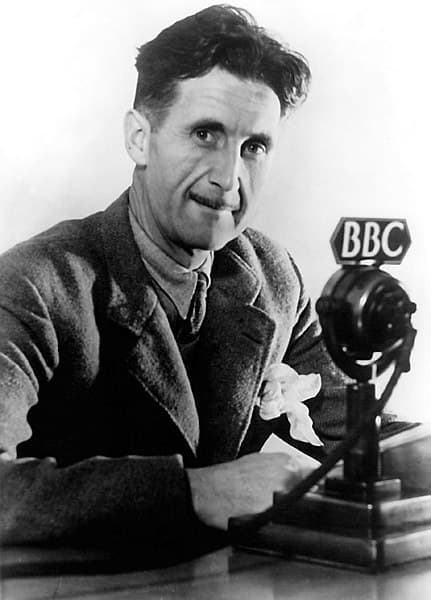
Orwell at the BBC
During the Second World War, Orwell was declared unfit for active duty. He actively supported the war effort from the start. (He didn’t wait for the Soviet Union to enter like some communists.) He also began writing for the left-leaning magazine ‘The Tribune’ which was associated with the left of the Labour Party. Orwell was appointed editor and was enthusiastic in supporting the radical Labour government of 1945, which implemented a national health service, welfare state and nationalisation of major industries. However, Orwell was not just focused on politics, he took an active interest in working class life and English culture. His short essays investigated aspects of English life from fish and chips to the eleven rules of making a good cup of tea.
Orwell described himself as a secular humanist and could be critical of organised religion in his writings. However, he had a fondness for the social and cultural aspect of the Church of England and attended services intermittently.
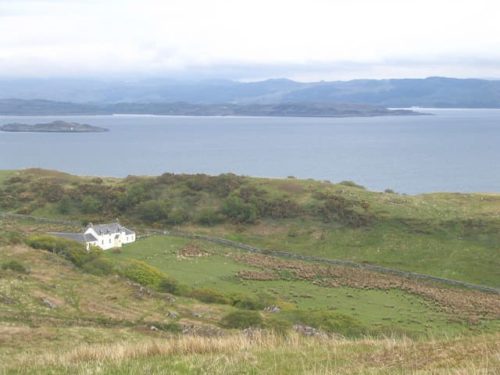
Barnhill. Jura
He married Eileen O’Shaughnessy in 1936 and in 1944, they adopted a three-week old child – Richard Horatio. Orwell was devastated when Eileen died and sought to remarry – seeking a mother for his young son. He asked several women for their hand in marriage, with Sonia Branwell accepting in 1949 – despite Orwell’s increasingly poor health. Orwell was a heavy smoker and this affected his lungs causing bronchial problems. In the last years of his life, he moved to a remote farm on the Scottish island of Jura to concentrate on his writings. Orwell passed away on 21 January 1950. His friend David Astor helped him to be buried at Sutton Courtenay churchyard, Oxfordshire.
The two great novels of Orwell were “ Animal Farm ” and “ 1984 ”. Animal Farm is a simple allegory for revolutions which go wrong, based primarily on the Russian revolution. 1984 is a dystopian nightmare about the dangers of a totalitarian state which gains complete control over its citizens.
Citation: Pettinger, Tejvan . “Biography of George Orwell”, Oxford, www.biographyonline.net 3 Feb. 2013. Last updated 4 Feb 2018.
- The Socialism of George Orwell
- George Orwell Quotes
- George Orwell, “Shooting an elephant”, George Orwell selected writings (1958) p.25
- George Orwell, “Road to Wigan Pier” (Harmondswith) 1980 p.130
- George Orwell, Homage to Catalonia 1959 p.58
George Orwell – a collection of essays
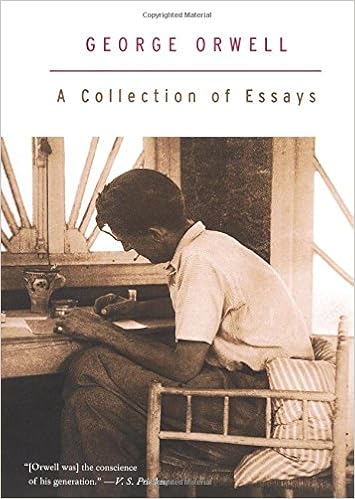
George Orwell – a collection of essays at Amazon.com
Animal Farm and 1984

Related pages
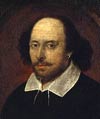
George Orwell Resources
- George Orwell biography
- George Orwell at BBC history
- Achievements of George Orwell
Local Histories
Tim's History of British Towns, Cities and So Much More
A Biography of George Orwell
By Tim Lambert
His Early Life
George Orwell was one of the greatest writers of the 20th century. He was born Eric Arthur Blair on 25 June 1903 in India. His father was a colonial civil servant and the family was middle class but not particularly well off. However, when Orwell was only a year old his mother moved back to England while his father stayed in India until 1912. Meanwhile, in 1911 George went to St Cyprian’s School in Eastbourne. In 1917 he won a scholarship to Eton but in 1921 he joined the British police in Burma. However, Orwell grew dissatisfied and he resigned in 1927.
George Orwell decided to become a writer. He also began living among the poor. In 1928 he journeyed to Paris. For a short time in 1932-1933, Orwell worked as a teacher in a small private school. In 1934 Orwell got a part-time job in a second-hand bookshop.
Meanwhile, in 1933 his first book was published Down and Out in Paris and London. In 1934 his first novel Burmese Days was published. In 1935 George Orwell had another novel published. It was called A Clergyman’s Daughter. It was followed in 1936 by Keep the Aspidistra Flying. Also in 1936, Orwell married Eileen. (She died in 1945).
In 1936 George Orwell was commissioned to write a book about poverty in northern England. The Road to Wigan Pier was published in 1937.
Meanwhile, Orwell, a Socialist left for Spain in December 1936 to fight in the Spanish Civil War. (The civil war was between the left-wing Republicans and the Fascist Nationalists. Some foreign volunteers took part). While there he was wounded in the throat. Meanwhile, Communists began to arrest dissenters, and Orwell was forced to flee from Spain. After arriving in Britain he wrote A Homage to Catalonia, published in 1938.
The Great Writer
However, by 1938 Orwell was suffering from tuberculosis. He spent the winter of 1938-1939 in Morocco. In 1939 another novel, Coming Up For Air was published. At the beginning of the Second World War George Orwell was rejected for military service but from 1941 to 1943 he worked for the BBC. In 1943 he became literary editor for the Tribune a left-wing magazine.
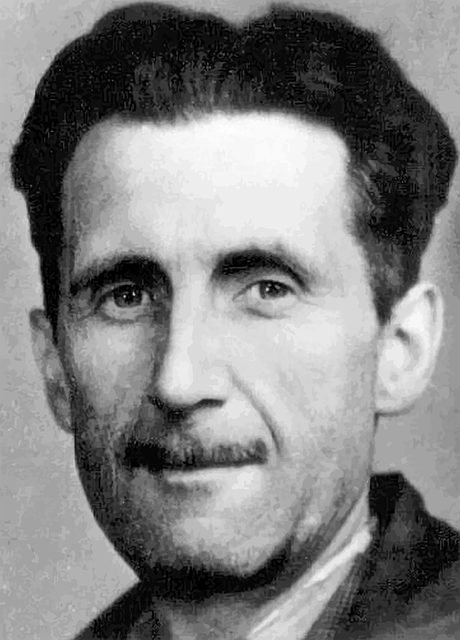
Then in 1945 his great satire Animal Farm was published. In 1949 his masterpiece 1984 was published. But his health was failing. In October 1949 George Orwell married his second wife Sonia. George Orwell died on 21 January 1950. He was only 46.
Share this:
- Click to share on Twitter (Opens in new window)
- Click to share on Facebook (Opens in new window)
- Click to share on LinkedIn (Opens in new window)
- Click to share on WhatsApp (Opens in new window)
Fiction Fiction
Non-Fiction Non-Fiction
Essays Essays
- Other Authors :

IMAGES
COMMENTS
6 days ago · George Orwell was an English novelist, essayist, and critic famous for his novels Animal Farm (1945) and Nineteen Eighty-four (1949), the fictionalized but autobiographical Down and Out in Paris and London (1933), and Homage to Catalonia (1938), an account of his experiences in the Spanish Civil War.
Apr 2, 2014 · George Orwell was a novelist, essayist and critic best known for his novels Animal Farm and Nineteen Eighty-Four. He was a man of strong opinions who addressed some of the major political...
Eric Arthur Blair (25 June 1903 – 21 January 1950) was an English novelist, poet, essayist, journalist and critic who wrote under the pen name of George Orwell. His work is characterised by lucid prose , social criticism , opposition to all totalitarianism (both authoritarian communism and fascism ), and support of democratic socialism .
George Orwell was an English novelist, essayist, and critic most famous for his novels Animal Farm (1945) and Nineteen Eighty-Four (1949). The following biography was written by D.J. Taylor. Taylor is an author, journalist and critic.
Read a concise summary of George Orwell's life and works. Discover what lead him to write his novels including 'Animal Farm' and Nineteen Eighty Four'.
George Orwell, (25 June 1903 – 21 January 1950) has proved to be one of the twentieth century’s most influential and thought-provoking writers. His relatively small numbers of books have created intense literary and political criticism.
Mar 14, 2021 · George Orwell was one of the greatest writers of the 20th century. He was born Eric Arthur Blair on 25 June 1903 in India. His father was a colonial civil servant and the family was middle class but not particularly well off.
George Orwell is the pen name of Eric Arthur Blair, born in 1903 in Motihari, Bengal, India, during the time of the British colonial rule. Young Orwell was brought to England by his mother and educated in Henley and Sussex at schools.
George Orwell was an English novelist, essayist, journalist and critic; he is best known for his novels ‘Animal Farm’ and ‘Nineteen Eighty-Four’. Check out this biography to know about his childhood, life, achievements, works & timeline
He chose a pen name that stressed his deep, lifelong affection for the English tradition and countryside: George is the patron saint of England (and George V was monarch at the time), while the River Orwell in Suffolk was one of his most beloved English sites.